The Book
This book is about coming to awareness, about the conscious use and integration of resources we all have. Further, It suggests that we try on for size a paradigmatic shift and explore our own journey through our personal lives and our work, by building a relationship of understanding and trust with ourselves first. That we listen to and hear through the intuitive process first. For isn’t that how our best ideas and insights often arrive?
Each chapter that follows is part of a series of essays and commentaries based upon the author’s subjective, personal discoveries, inspirations, and ideas. Stories are told here as the examples of life and the lives around us, which can not only impact and shape our own lives, but can continue to shape our conscious awareness and perspective: encouraging our own growth if we allow ourselves to be open to deeper insights and vision.
Reviews
It is with deep respect and admiration that we congratulate you — you’ve officially been selected as a Finalist for the Author of the Year 2025 at the International Impact Book Awards, in the category of Non-Fiction – Self-Help. Your work was reviewed among hundreds of exceptional entries, and your message rose to the top. This recognition is more than a ranking — it’s a reflection of the impact your voice has had on readers, on the judging panel, and on the world of thought leadership. You’ve done something most people only dream about: you’ve written a powerful book, you’ve put your truth on paper, and you’ve created something that moved others. That is no small thing. This moment is yours.
– International Impact Book Awards

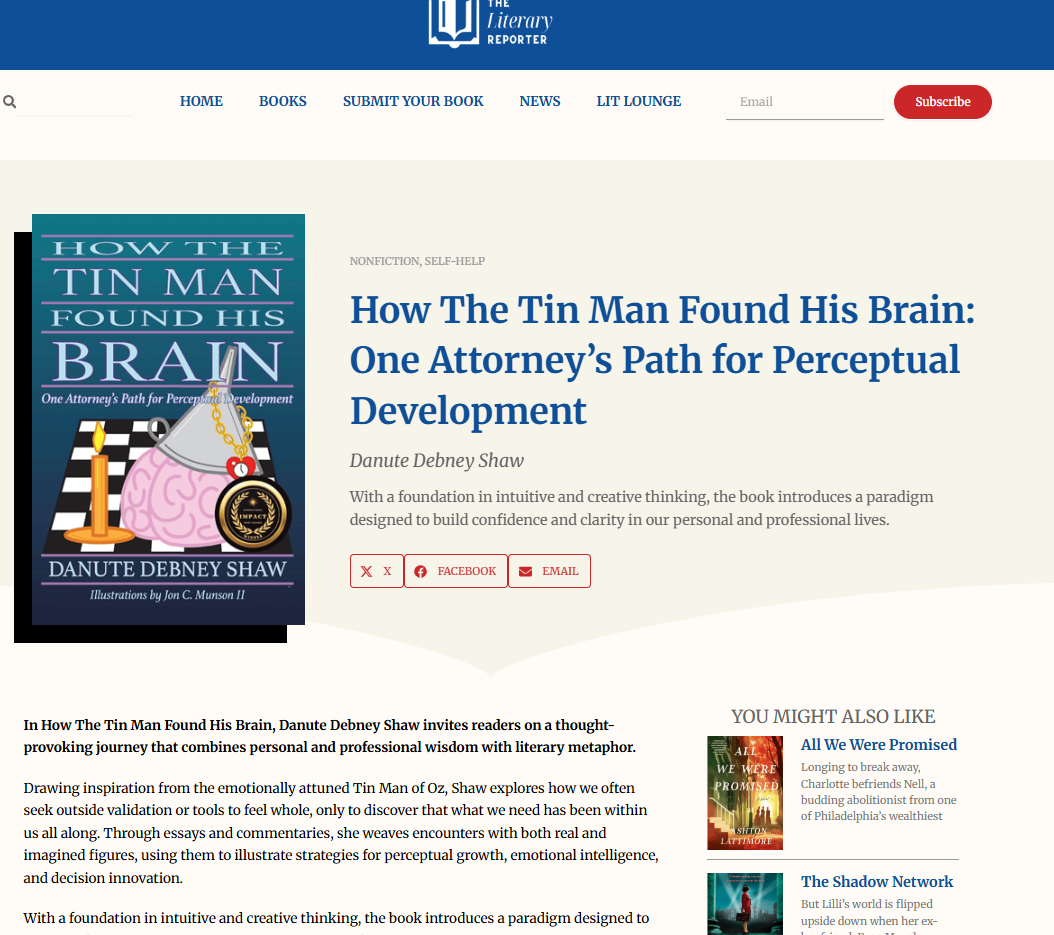
Link To Literary Reporter Review
What an intellectually rich and soulfully reflective work! Your book seamlessly blends literary metaphor with real-world insight, creating a sense of both innovation and profound grounding. By drawing from the Tin Man’s quest and layering it with personal and professional wisdom, you’ve made a compelling guide for emotional intelligence, intuitive decision-making, and inner growth. The blend of storytelling, essay, and reflective commentary offers readers practical inspiration wrapped in thoughtful prose. It’s the kind of work that stays with the reader, inviting them to return, reflect, and explore further.
– LiteraryReporter.com
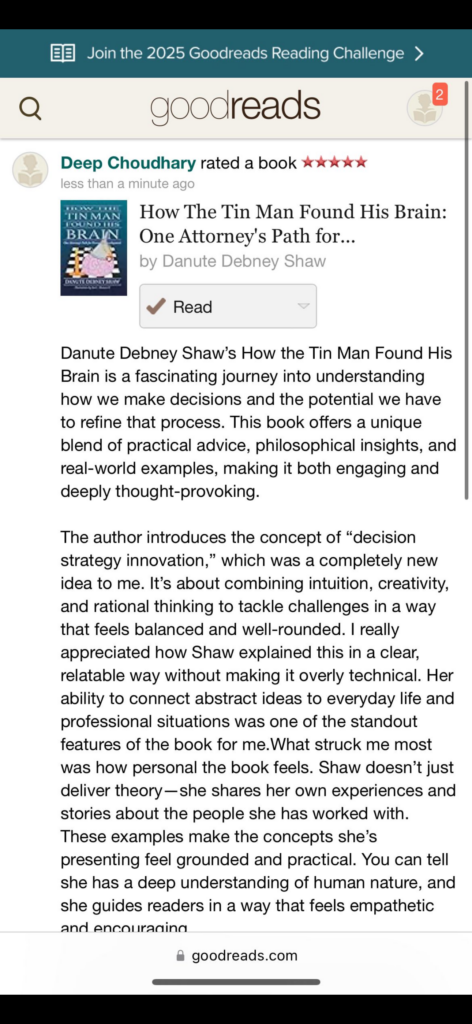
Read more on goodreads.com in the reviews section.
reads.charlotte reviews: https://www.instagram.com/p/DANZzQmSgOb/?igsh=cG5tNDAzNGFjYWh5
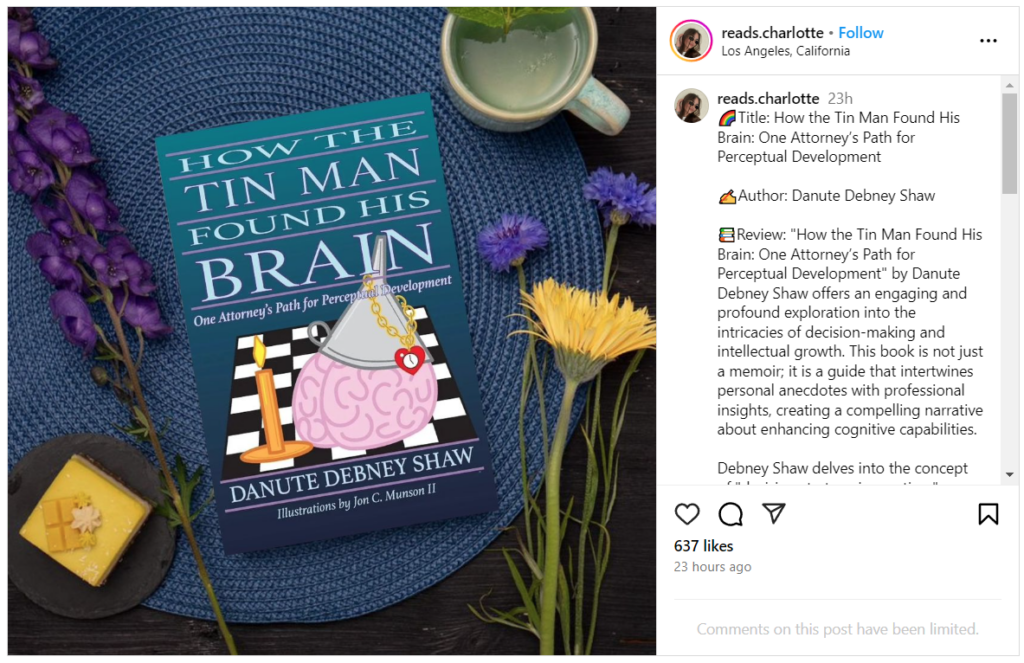
bookmarks.reviews review: https://www.instagram.com/p/DEgYZS5yGlC/?igsh=MWZlZzl1b3I4eWIzMQ==
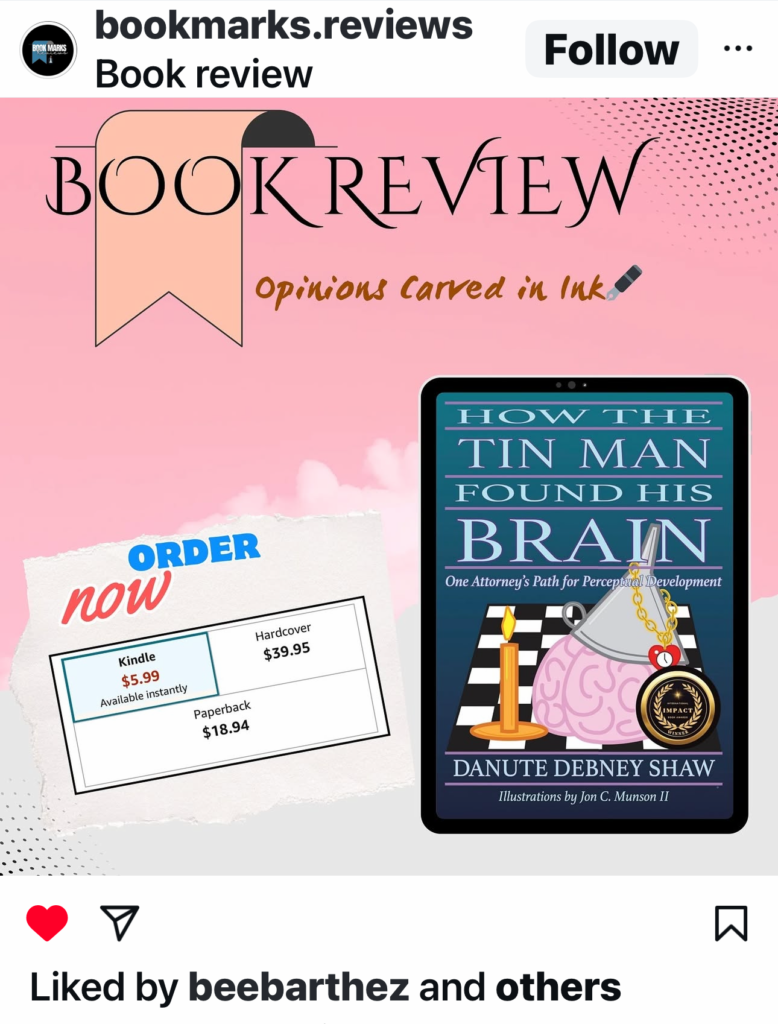
How The Tin Man Found His Brain is a thought-provoking guide for anyone eager to enhance their decision-making and embrace personal growth. It’s highly recommended for readers seeking practical strategies to navigate life’s complexities with greater clarity and innovation.
– bookmarks.reviews (via Instagram)
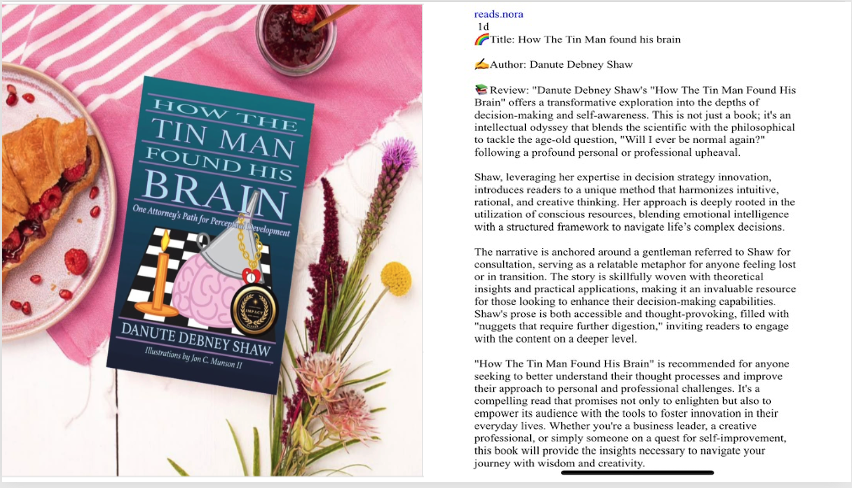
Author Alice Hoffman is famous for her quip: “Once you know some things, you can’t unknow them. It’s a burden that can never be given away.” Danute Debney Shaw’s “Tin Man” takes Hoffman’s “burden” and turns it into an asset for use in our personal and professional lives. With a superb story-telling approach Ms. Debney Shaw walks the Tin Man through self-discovery, leading us to a process for decision making with family, friends, and colleagues.
Hers is a process not for survival, but to thrive…Keep reading, because it unfolds a strategy that sees the end first, then guides in thinking through the process(es) to get there. It gets better as you go… Read Tin Man and you will see how awareness and forethought can help you save time, energy and mental pain; to act from a position of strength, formed from information and insight, and influenced by wisdom. Use her ideas for broadening conscious awareness; they will serve as rust solvent on your rusting tin man parts.
– Arthur Humphries
Former Navy Commander, US government advisor,
business executive, consultant, and community leader
The intriguing aspect of this story lies in the journey of personal transformation and decision-making strategies explored within its pages. The narrative begins with a question: “Will I ever be normal again?” This question sets the stage for an exploration into the concept of the “First Light,” a moment of clarity or realization. [We meet] a gentleman seeking consultation, appears uncertain and possibly confused about his purpose or goals.
The story delves into the field of decision strategy innovation, an approach to problem-solving that integrates various facets of conscious thought, including intuitive, rational, and creative elements. This method, as described, involves harnessing subjective and emotional intelligence to address both professional and personal challenges effectively.
Quoting Alice Hoffman through Mr. Humphries [a reviewer], the narrative suggests that once knowledge is acquired, it cannot be undone, indicating that learning leads to internal change. Throughout the narrative, the author, Ms. Debney Shaw, guides readers on a personal journey aimed at improving decision-making strategies and fostering innovation. The story promises to offer insights and “nuggets” that may require further reflection, inviting readers to embark on a path of self-discovery and growth.
– Reviewer Unknown
“There’s something quietly powerful about How The Tin Man Found His Brain—a story that doesn’t need to shout to be unforgettable. It lingers. It reaches the right places. It speaks to the heart in ways that stay.”
Rona Weisberg
Editorial Curator
Championing Stories, Celebrating Voices
The content is excellent, extremely relevant, and timeless And left me wanting more!
– Betty Ann Canney, RNC, Gerontological Grief Specialist
Trained under and influenced by Elisabeth Kubler-Ross
and the Kubler-Ross grief model
“How The Tin Man Found His Brain”
Chapter 12 HOLDING YOUR POSITION… AND YOUR POWER
Page 70:
“It can be very challenging to hold our own power in the midst of the crowd, worse yet if we don’t actually understand the crowd, or entirely agree with it. If we have not determined where and how we fit, or do not fit-in with the crowd and why, how are we really a part of it?”
I find this to be a very interesting topic with many roads that lead to many different places. At the end of the roads the difference is not fearing versus not caring. Do people understand what I am saying? Do I change what I am saying so people understand me? Do I worry that they agree with me? Am I really authentic? If you can’t be honest with yourself, you can’t be honest with others. What road do you WANT to go down? Great points and a great chapter.
– Chris Allaire, President of Averity, a technology recruiting company. New York, New York
Reviewing your book was a highlight for me. your talent as an author is evident on every page[.]
– Inklopedia.inc








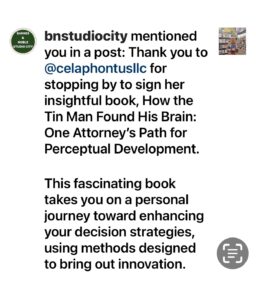
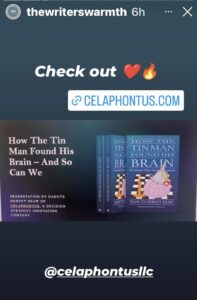
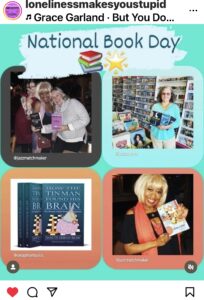
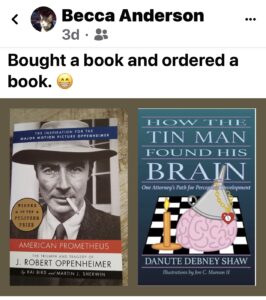
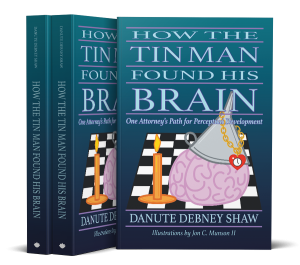
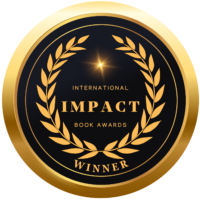
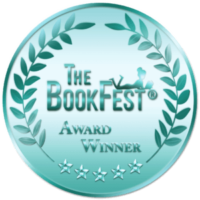

 Copyright © 2025 Celaphontus, All Rights Reserved
Copyright © 2025 Celaphontus, All Rights Reserved